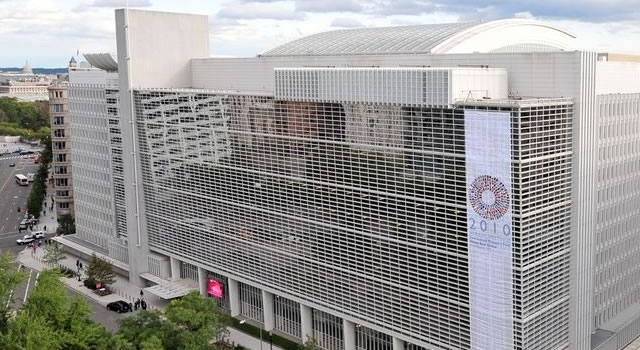Politics
Nigeria among African countries to benefit from $22.5m electricity grant by World Bank

Nigeria and 18 other African countries would benefit from the World Bank’s 22.5 million dollars additional financing for the Regional Off-Grid Electricity Access Project (ROGEAP) in Western and Central Africa.
The World Bank announced this in a statement issued on Friday, March 12, in Washington D.C., adding that its board of Executive Directors had approved the additional financing.
It said the additional financing was in the form of grants from the International Development Association (IDA) and the Clean Technology Fund (CTF).
According to the statement, the project’s geographic scope would cover Nigeria and 18 other countries in Western and Central Africa, 15 of which were members of the Economic Community of West African States (ECOWAS).
The countries included Benin, Burkina Faso, Cabo Verde, Côte d’Ivoire, Gambia, Ghana, Guinea, Guinea-Bissau, Liberia, Mali, Niger, Nigeria, Senegal, Sierra Leone, and Togo.
Others are Cameroon, Central African Republic, Chad and Mauritania.
According to the statement, the project is to support the development of the market for stand-alone solar products in Western and Central Africa, including a dedicated effort for the Sahel countries.
It noted that it complemented the 150 million dollars of IDA and 67.2 million dollars CTF approved by the board in April 2019 for the project.
”The project will support activities to accelerate the deployment of stand-alone solar products, in a sub-region where 50 per cent of the population does not have access to electricity and where less than 3 per cent of the population uses such innovative technologies.
READ ALSO: SERAP wants World Bank to publish records on electricity projects funded with $500m loan
”It seeks to harmonise policies and standards and business procedures to develop a regional market of stand-alone solar products, support entrepreneurs in business acceleration activities and provide credits and grants for the deployment of stand-alone solar home systems,” it said.
The statement further said the project was expected to contribute to human capital development by electrifying public health centers and schools, which were needed to improve health and education outcomes.
It also said the project would support job creation.
”For instance, it will apply in farming communities which can use solar water pumps for irrigation, solar milling equipment for product transformation and solar refrigerators to bring products to market.
”The project will support the small and innovative business enterprises through solar home systems and will make an impact in economic recovery, following the coronavirus pandemic,” it stated.
The statement noted that through the additional funding and restructuring, the ECOWAS had been appointed as a new implementing agency of the project, which would work on developing a regional market and supporting activities for entrepreneurs.
It added that the ECOWAS would coordinate the project activities with the West African Development Bank (BOAD), the other implementing agency of the project, which would support the provision of a line of credit with commercial banks operating in the sub-region.
Ripples Nigeria garnered that the IDA, which was established in 1960, assists the world’s poorest countries by providing grants and low to zero-interest loans for projects and programs that boosted economic growth.
Join the conversation
Support Ripples Nigeria, hold up solutions journalism
Balanced, fearless journalism driven by data comes at huge financial costs.
As a media platform, we hold leadership accountable and will not trade the right to press freedom and free speech for a piece of cake.
If you like what we do, and are ready to uphold solutions journalism, kindly donate to the Ripples Nigeria cause.
Your support would help to ensure that citizens and institutions continue to have free access to credible and reliable information for societal development.






















